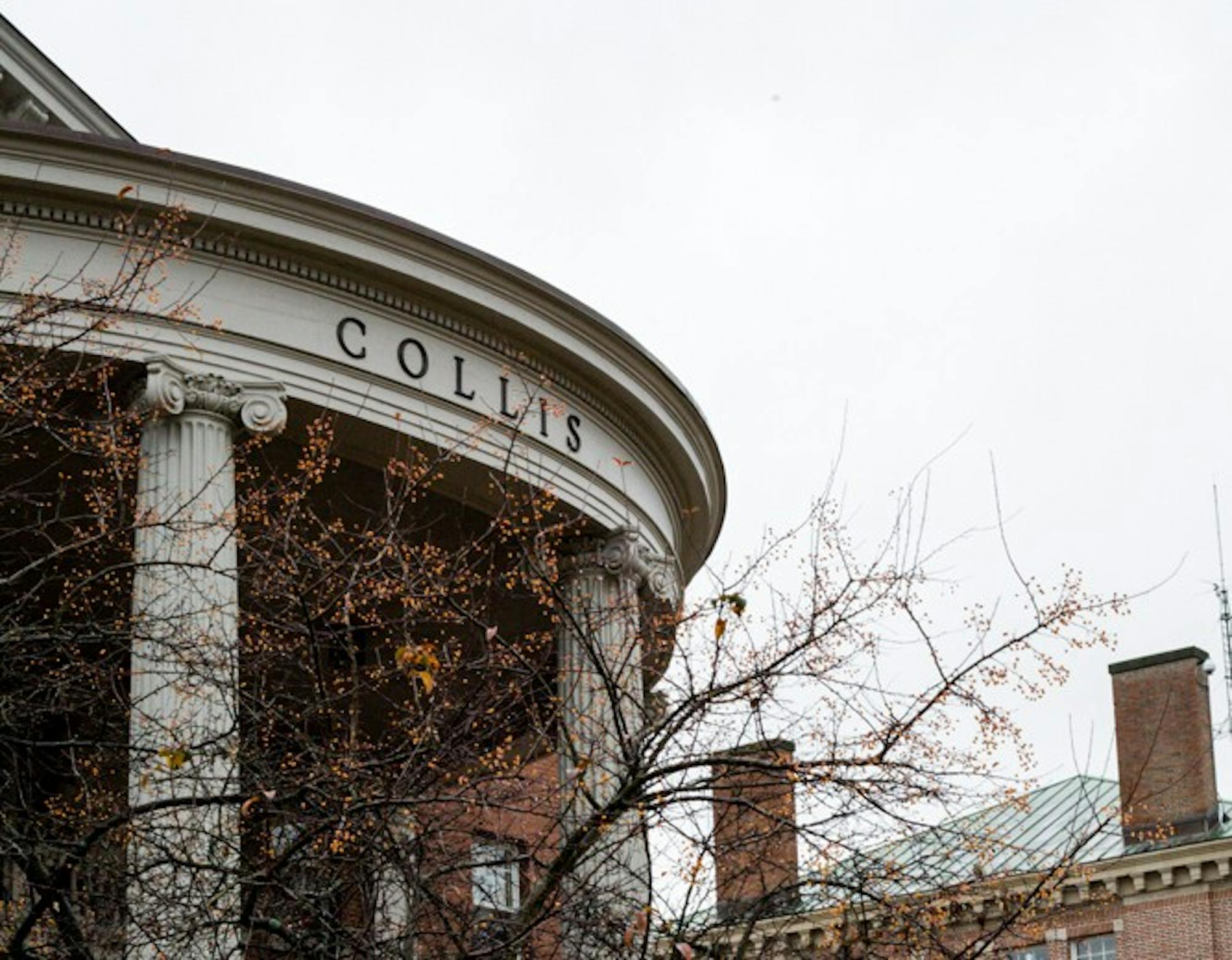On May 19, the Dartmouth Student Government Senate met for its eighth weekly meeting of the spring term. Led by student body president Jessica Chiriboga ’24, the Senate discussed how to handle emergency situations — such as the May 1 protest — in the future. The Senate also outlined its broad goals for next fall, which include improving free speech policies and communication between DSG and students.
School House senator Alejandra Carrasco Alayo ’25 said the Senate should create an emergency committee to help process “situations in which misconduct happens” and maintain “healthy relationships” between DSG, the College administration and the student body. The committee would handle drafting emails to the student body, which DSG currently writes together. According to Carrasco Alayo, this committee would help DSG issue faster responses.
“We need to … have this committee try to be non-biased but have the capacity to take a stand on difficult situations, such as the student arrests,” Carrasco Alayo said. “I think it shouldn’t take us six days to respond under those circumstances — I think we should have [senators] be online to make quick, thoughtful and very specific decisions.”
Chiriboga said she “does stand by, and will continue to stand by” the Senate’s decision to release a statement after six days of deliberation.
“Our deliberate process of talking to a diverse group of student groups with varying views and different political perspectives was beneficial and led to a statement that was far stronger than if we released it earlier without doing what I view as our due diligence,” she said.
Town liaison Nicolás Macri ’24 said the DSG response was “reactive.”
“If we try to have those relationships [with student groups] ongoing before [an emergency], it makes it easier for us to have a proactive response,” he said.
Macri also said he wanted to “continue advocating for students in Town government” and for senators to “invest time in talking to the Town government.”
Senators and executives also discussed supporting students who were arrested on May 1. Some students who were arrested have expressed concerns that they have not been able to retrieve belongings that were taken by authorities, according to Macri.
Carrasco Alayo suggested that senators hold weekly meetings with affinity groups to “keep [DSG] posted” about students’ day-to-day concerns.
“Sometimes we receive all of that information when things are [at their] peak, and there is no way to deescalate the situation,” she said.
Macri added that the students arrested in May may face Class A misdemeanors, which are punishable by one year in jail and a fine of up to $2,000. Chiriboga suggested writing a “status update” for students who submitted requests that the prosecutor lift the bail condition that bars them from setting foot on the Green. This is especially relevant for graduating students who want to attend their commencement, she said.
Chiriboga also said DSG hopes to announce revisions to the College’s free expression and dissent guidelines, but this work “shouldn’t just be limited to this year.” She suggested convening a working group on freedom of expression and dissent.
“This is really an important moment where universities are really trying to figure out what their principles are, in a way that they haven’t had to,” she said. “Let’s be thinking actively about how we can move forward as an institution that upholds the robust freedom of expression and dissent. … How do we ensure that people do not feel silenced or intimidated?”
Correction Appended (May 26, 10:48 p.m.): A previous version of this article erroneously stated that Macri said the student protesters arrested in October may be charged with Class A misdemeanors. In fact, he said students arrested at the pro-Palestinian protest in May may be charged with Class A misdemeanors. The protesters arrested in October have already been charged with Class B misdemeanors. The article has been updated.




